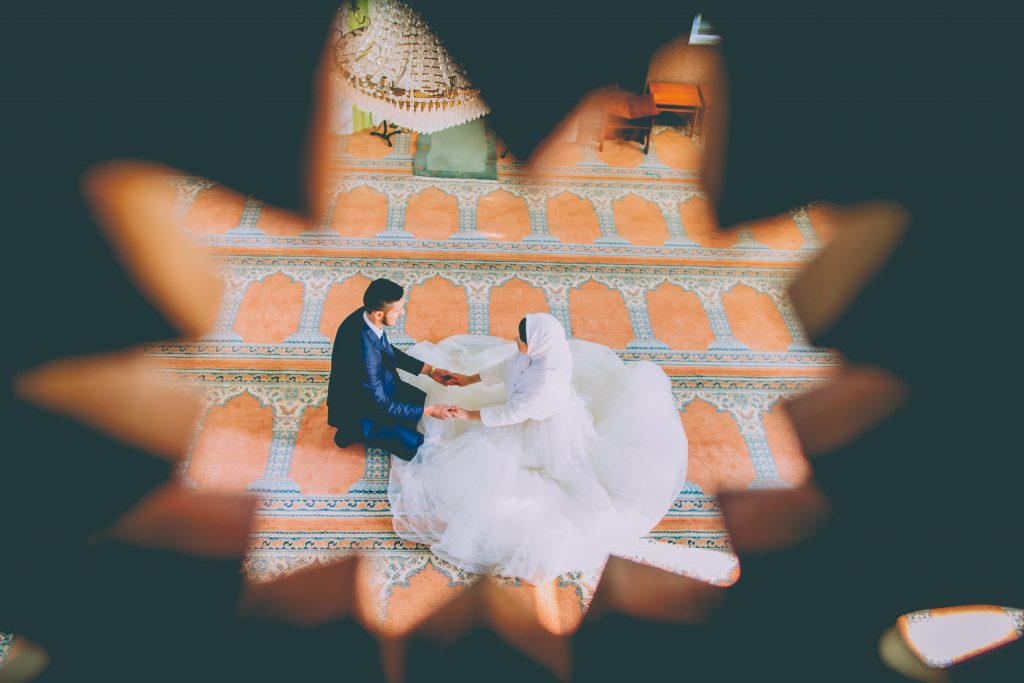First of all, Islamic marriage customs depend on the country, but all couples are guided by laws and practices stated in the Quran. A husband and wife are each other’s protector and comforter, and marriage is seen as a way to maintain the religion, especially when growing your family. So what exactly happens at a traditional Muslim wedding?
Pre-wedding
Meher
This is a payment made by the groom to his bride-to-be. It usually consists of two parts, prompt and deferred. Nowadays, most couples regard the ring as the prompt. The deferred amount is usually a smaller sum of money, an education, land or jewellery. The money belongs to the bride and she is free to do whatever she wants with it. Meher is a sign of security between the couple.
Wedding
Nikah
The wedding ceremony is known as Nikah. In order to officialise the marriage, the couple only have to sign a marriage contract. The wedding can be officiated by any Muslim who is well versed with Islamic tradition. An Islamic wedding does not require an official clergy. Two people have to be present to witness the joyous union.
To express their love and free choice, the couple repeat the word ‘qabul’ three times, which means ‘I accept’ in Arabic.
Once the contract is signed, a piece of sweet fruit is shared by the happy couple.
Fatihah and durud
The officiant usually reads the Fatihah which is the first chapter of the Quran. They speak about the meaning of marriage and the bond that the newlywed couple will share and their responsibilities to Allah and each other. It is not uncommon for a Muslim couple to not share vows. The newlyweds focus on what their officiant is saying.
Post-wedding
Walima
This is similar to a wedding reception. The purpose of a walima is to announce and rejoice the recent matrimony. Loved ones will gather and feast to celebrate the newlyweds.
It’s important to note that many wedding traditions vary as a result of the different regions. So some practices may not be the same all over.
Image: Unsplash




















